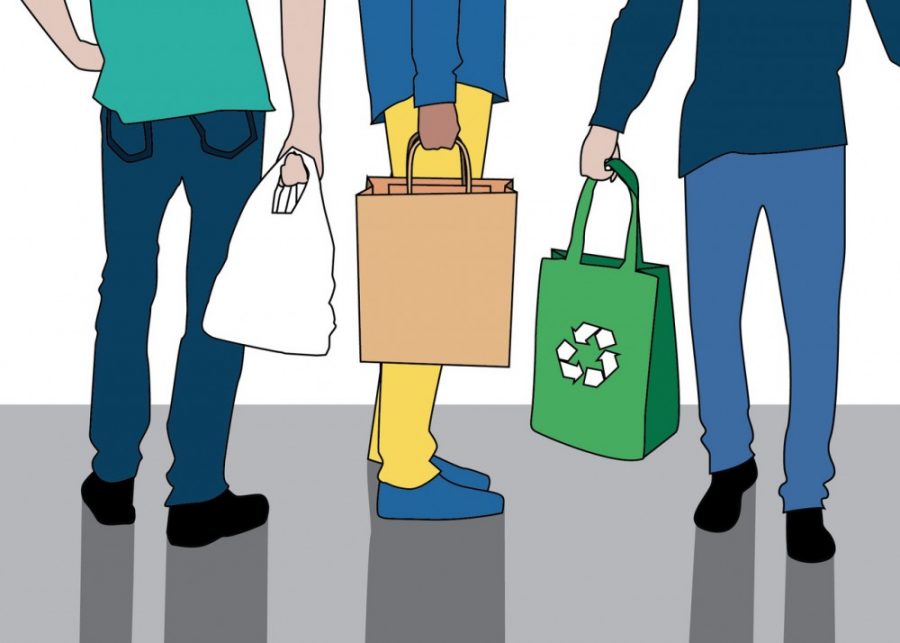Minneapolis reinstated a 5 cent grocery bag ordinance fee Oct. 1. After an 18-month hiatus due to the COVID-19 pandemic, the city is excited to be rolling out this plan again.
“The purpose of the ordinance really is to try and minimize the amount of waste that ends up in landfills, water bodies and our public spaces and trees,” said Enrique Velazquez, manager of licenses and consumer services for the city. “Though it seems inconsequential and insignificant, they add up and it’s a strain on our resources that doesn’t need to be there if we have other resources available.”
This ordinance mandates that businesses charge a 5 cent fee for each single use bag. This includes plastic, paper and compostable bags. The goal is to encourage customers to bring in their own reusable bags.
Velasquez said Minneapolis is progressive when it comes to environmental issues, but the feedback has been mixed.
“We have the national chains that have no problem with it … [but] then we have a different segment of the population that are the smaller, independent businesses,” Velazquez said. “For example, a small restaurant might be dealing with not being able to use plastic straws or styrofoam, minimum wage increases and these factors stack up … often these businesses are frustrated and prefer that the government stay out of their business.”
The city allows some exceptions to the fee. Bags at farmers markets, produce bags and bags for bulk items such as baked goods, flowers and meats are free of charge. Customers participating in state or federal food assistance programs are exempt from the charge.
Sam Sara, a manager at Adam’s Grocery and Tobacco, a local business in Southeast Como, shared he is happy to implement this ordinance.
“It’s a very good idea,” Sara said. “There is absolutely no doubt that this will have a positive impact on the environment. We haven’t heard people complaining here.”
Sara explained they were excited to hear that Minneapolis is allowing the 5 cent fee to go directly back to businesses. At Adam’s Grocery and Tobacco, they pay around $20 for around 300 to 500 plastic bags. This supply can last them a few weeks.
“We are happy to get some of that money back,” Sara said.
Michelle Garvey, an environmental justice teaching specialist at the University of Minnesota, raised some concerns with the ordinance.
“I think it’s important to disincentivize plastic consumption,” Garvey said. “My concern with the ordinance is the way that it displaces responsibility for what I believe is a systemic injustice, onto individuals, and it does so equally, not equitably.”
Garvey said individuals are receiving a message that tells them they are responsible for pollution while at the same time the government is subsidizing the fossil fuel driven plastics industry.
“It’s complicated,” Garvey said. “I know and believe that individual practices and individual consumption makes a difference, and they add up, but there are clearly more effective interventions.”



















